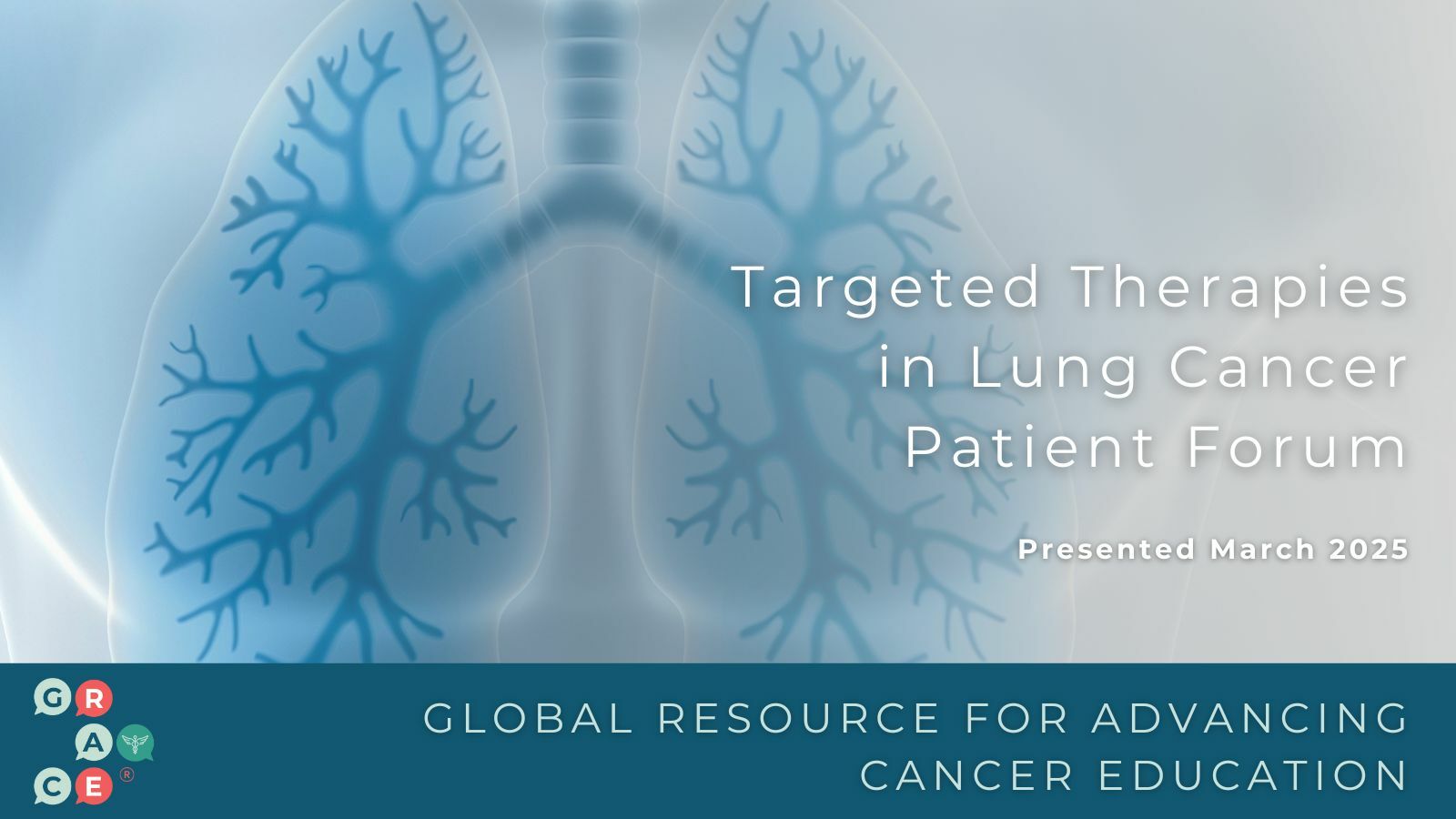Article and Video CATEGORIES
Please Note: New Treatments Have Emerged Since this Original Post
Continuing with the webinar discussion I had with Dr. Pennell, here is a summary I did of a randomized phase II trial of the novel agent ARQ-197 combined with the EGFR inhibitor Tarceva (erlotinib): ==================================== Dr. West: We're going to shift gears and move into the metastatic setting, and this is a new agent called ARQ197 that is orally available, which was tested in combination with erlotinib(Tarceva) compared with Tarceva alone. And this was actually in the patients who had received one or more prior lines of chemo and could not have received prior Tarceva or another EGFR inhibitor, directly comparing these two groups that randomized one-to-one. Also, patients who had been assigned to placebo could actually go on the combination at the time of progression, and we did get some interesting information from that.  (click on image to enlarge)
(click on image to enlarge)
The study enrolled very quickly: it was a randomized Phase II trial, and I'll show you the numbers very shortly. My center was one that was planning to be involved, but it actually enrolled so quickly at a few centers that we didn't even get the chance. So what is this ARQ197? It's a MET inhibitor, and MET stands for mesenchymal-epithelial transition factor, and this is involved in the cascades of EGFR and KRAS and others.  And it's actually one of the potential mechanisms for resistance to EGFR-inhibition and in itself is associated with cell proliferation, motility, migration, angiogenesis, this transition from epithelial to mesenchymal that is associated with resistance to EGFR-inhibitors and promotes invasion and metastasis and it's associated with worse outcomes when it's over-expressed in patients with lung cancer tumors. The study involved 167 patients randomized between the two arms and showed an improvement in progression-free survival, which was the primary endpoint of the study.
And it's actually one of the potential mechanisms for resistance to EGFR-inhibition and in itself is associated with cell proliferation, motility, migration, angiogenesis, this transition from epithelial to mesenchymal that is associated with resistance to EGFR-inhibitors and promotes invasion and metastasis and it's associated with worse outcomes when it's over-expressed in patients with lung cancer tumors. The study involved 167 patients randomized between the two arms and showed an improvement in progression-free survival, which was the primary endpoint of the study.  It was statistically significant and a really clear difference between the two arms as you can see that its hazard ratio of 0.81 corresponds to a 19% improvement, although it was especially concentrated at the median point which is here at 0.5, you could see a very significant difference. The overall survival was in favor of the combination, though it was not statistically significant and that's shown here, a difference of about seven weeks or so.
It was statistically significant and a really clear difference between the two arms as you can see that its hazard ratio of 0.81 corresponds to a 19% improvement, although it was especially concentrated at the median point which is here at 0.5, you could see a very significant difference. The overall survival was in favor of the combination, though it was not statistically significant and that's shown here, a difference of about seven weeks or so.  The study also included a breakdown looking at a few different variables, and one was by histology. When they looked at patients with non-squamous tumors, which were the majority -- about two thirds -- they found that overall survival actually was significantly better with ARQ197.
The study also included a breakdown looking at a few different variables, and one was by histology. When they looked at patients with non-squamous tumors, which were the majority -- about two thirds -- they found that overall survival actually was significantly better with ARQ197.  This was unplanned, but nowadays we know that histology can be extremely relevant and the differences are even more robust if we concentrated the evaluation at patients with non-squamous histology. They also looked at a few molecular variables, and what was interesting to see was that there was even more of a pronounced benefit in the patients who were EGFR wild type who we generally think of as not getting as profound a benefit with EGFR-inhibitors like Tarceva.
This was unplanned, but nowadays we know that histology can be extremely relevant and the differences are even more robust if we concentrated the evaluation at patients with non-squamous histology. They also looked at a few molecular variables, and what was interesting to see was that there was even more of a pronounced benefit in the patients who were EGFR wild type who we generally think of as not getting as profound a benefit with EGFR-inhibitors like Tarceva.  But here there was a really differential effect, admittedly in not incredibly large numbers, but it was still nearly a hundred patients. And also in patients with KRAS mutations, again small, small numbers, but this is a group of patients for whom we have not seen, had very difficult time making gains. Certainly, if this holds up in larger studies, it would represent a major benefit to be able to find something that could actually improve outcomes for the patients who we haven't been able to serve extremely well with Tarceva alone. What's also instructive is to see an improvement in some patients who were assigned to Tarceva alone and then crossed over to the combination, because there were actually two out of 23 evaluable who actually demonstrated significant tumor shrinkage and another nine who had stable disease. So you actually saw some improvement in people who had already been exposed to the same EGFR-inhibitor without the novel agent. This is going to be moving forward in a larger study that I'm very much hoping to be involved with, and the final design of that is still in the works at this point. Dr. Pennell: Hopefully, that one will not accrue so quickly that you won't be able to participate. Dr. West: Yeah, right -- well, it will be a larger study. Overall, I would say this is certainly an encouraging avenue. I'd welcome your thoughts, Nate. Dr. Pennell: I completely agree. I think this is an exciting avenue. We tend to get caught up with these targeted drugs, looking at the relatively small subpopulation of patients who have really the driving molecular changes like an EGFR mutation or the ALK translocation. We have to remember that the vast majority of patients with non-small cell lung cancer don't have a single genetic change that's driving it, but rather a number of different pathways that are active in their cancer cells. And MET is a pathways that is one of the highest of all the tyrosine kinases, and the activities of the MET receptor are among the most important pathways activated in lung cancer -- at least in lung cancer cell lines -- and probably that's true in actual lung cancer as well. It's probably not a single molecular change causing this, and so inhibition of MET by itself is unlikely to have a whole lot of benefit. But in combination with other drugs such as EGFR inhibitors, I think this is a very promising approach, especially for people who don't have an EGFR mutation. The KRAS data is intriguing. We'd caution everyone that there were only 15 patients with KRAS mutation for this analysis, so it's very hard to say comparing five patients to 10 patients is meaningful, but certainly, it should be looked at in larger studies of similar benefit. So I'm excited, I agree.
But here there was a really differential effect, admittedly in not incredibly large numbers, but it was still nearly a hundred patients. And also in patients with KRAS mutations, again small, small numbers, but this is a group of patients for whom we have not seen, had very difficult time making gains. Certainly, if this holds up in larger studies, it would represent a major benefit to be able to find something that could actually improve outcomes for the patients who we haven't been able to serve extremely well with Tarceva alone. What's also instructive is to see an improvement in some patients who were assigned to Tarceva alone and then crossed over to the combination, because there were actually two out of 23 evaluable who actually demonstrated significant tumor shrinkage and another nine who had stable disease. So you actually saw some improvement in people who had already been exposed to the same EGFR-inhibitor without the novel agent. This is going to be moving forward in a larger study that I'm very much hoping to be involved with, and the final design of that is still in the works at this point. Dr. Pennell: Hopefully, that one will not accrue so quickly that you won't be able to participate. Dr. West: Yeah, right -- well, it will be a larger study. Overall, I would say this is certainly an encouraging avenue. I'd welcome your thoughts, Nate. Dr. Pennell: I completely agree. I think this is an exciting avenue. We tend to get caught up with these targeted drugs, looking at the relatively small subpopulation of patients who have really the driving molecular changes like an EGFR mutation or the ALK translocation. We have to remember that the vast majority of patients with non-small cell lung cancer don't have a single genetic change that's driving it, but rather a number of different pathways that are active in their cancer cells. And MET is a pathways that is one of the highest of all the tyrosine kinases, and the activities of the MET receptor are among the most important pathways activated in lung cancer -- at least in lung cancer cell lines -- and probably that's true in actual lung cancer as well. It's probably not a single molecular change causing this, and so inhibition of MET by itself is unlikely to have a whole lot of benefit. But in combination with other drugs such as EGFR inhibitors, I think this is a very promising approach, especially for people who don't have an EGFR mutation. The KRAS data is intriguing. We'd caution everyone that there were only 15 patients with KRAS mutation for this analysis, so it's very hard to say comparing five patients to 10 patients is meaningful, but certainly, it should be looked at in larger studies of similar benefit. So I'm excited, I agree.
Please feel free to offer comments and raise questions in our
discussion forums.




